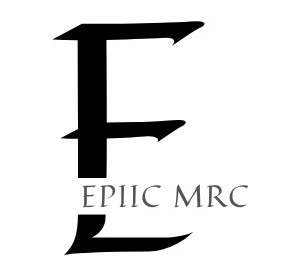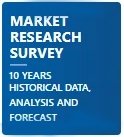Market Outlook
The global biosimilars contract manufacturing market is experiencing significant growth, driven by the increasing prevalence of chronic diseases and the rising demand for cost-effective biologic therapies. Valued at approximately USD XX billion in 2024, the market is projected to grow at a compound annual growth rate (CAGR) of XX% from 2025 to 2032, reaching around USD XX billion by the end of the forecast period.Key factors fueling this growth include advancements in biotechnological capabilities that enhance the scalability and quality of biosimilar production, as well as a favorable regulatory environment that encourages the development and approval of biosimilars. The increasing acceptance of biosimilars among healthcare providers and patients, coupled with the expiration of patents for several reference biologics, is further driving demand. Additionally, contract manufacturing organizations (CMOs) are increasingly being utilized by pharmaceutical companies to streamline production processes and reduce costs, allowing them to focus on core competencies such as research and development. Regions such as North America and Asia-Pacific are expected to lead in market growth due to their robust healthcare infrastructure and supportive regulatory frameworks. Overall, the biosimilars contract manufacturing market presents substantial opportunities for stakeholders looking to capitalize on the growing demand for affordable biologic therapies.
Drivers of the Biosimilars Contract Manufacturing Market
Rising Demand for Cost-Effective Therapeutics: The increasing prevalence of chronic diseases, such as cancer and autoimmune disorders, has led to a growing demand for biologic therapies, including biosimilars. This growth is driven by the need for affordable alternatives to expensive biologic drugs, making biosimilars an attractive option for healthcare providers and patients alike.
Advancements in Biotechnological Capabilities: Innovations in manufacturing processes, such as improved cell line development and purification technologies, have enhanced the scalability and quality of biosimilar production. These advancements enable contract manufacturing organizations (CMOs) to meet stringent regulatory requirements while ensuring consistent product quality. As noted in industry reports, the increasing complexity of biologics necessitates specialized manufacturing expertise that CMOs provide.
Favorable Regulatory Environment: Many regions, particularly Europe and North America, have established supportive regulatory frameworks for the approval of biosimilars. The European Medicines Agency (EMA) has clear guidelines for biosimilar approval, encouraging pharmaceutical companies to invest in biosimilar production. This regulatory clarity fosters confidence among manufacturers and promotes outsourcing to CMOs, further driving market growth.
Restraints in Market Growth
High Development Costs: The development and production of biosimilars involve significant investment in research, development, and manufacturing capabilities. This high cost can deter smaller companies from entering the market or limit their ability to scale operations effectively. For instance, while biosimilars are generally cheaper than their reference biologics, the initial investment required for their development can be substantial.
Complex Approval Processes: Although regulatory frameworks are becoming more favorable, the approval process for biosimilars remains complex and time-consuming. Companies must provide extensive clinical data to demonstrate that their products are highly similar to existing biologics in terms of safety and efficacy. Delays in obtaining approvals can hinder market entry and reduce competitiveness.
Opportunities in the Market
Growing Pipeline of Biosimilars: There is a robust pipeline of biosimilars under development, which presents significant opportunities for contract manufacturers. As more biosimilars approach commercialization, the demand for contract manufacturing services is expected to rise sharply. Reports indicate that many pharmaceutical companies are increasingly outsourcing their biosimilar R&D and manufacturing to CMOs to expedite market entry while minimizing costs.
Expansion into Emerging Markets: The increasing acceptance of biosimilars in emerging markets presents a lucrative opportunity for contract manufacturers. Countries like India and China are promoting biosimilars through favorable regulatory frameworks and incentives, making it easier for local companies to enter the market. The cost advantage associated with manufacturing in these regions can attract global pharmaceutical companies looking to outsource their production needs.
Competitive Landscape
Boehringer Ingelheim GmbH
Lonza
Catalent Inc.
Biocon
IQVIA Inc.
AGC Biologics
Epygen Biotech
Sandoz
Amgen
Celltrion
Fujifilm Kyowa Kirin Biologics Co., Ltd.
Thermo Fisher Scientific Inc.
Almac Group
Prestige BioPharma
Xbrane Biopharma
Regional Insights
- In India, Aurobindo Pharma, a Hyderabad-based pharmaceutical company, is focusing on expanding its specialty business, accelerating biosimilar product development, strengthening its supply chain, and scaling operations in growth markets. The company has submitted 14 peptide API drug master files in the U.S.
- In US, Enzene Biosciences has launched its first manufacturing site in the US, located in Hopewell near Princeton, New Jersey. The site, expected to be ready in June 2024, will integrate the company’s patented EnzeneX continuous manufacturing technology platform. The plant, spread over 54,000 square feet, is one of the only biologics-focused continuous manufacturing bases set up by an Indian firm in the US. Enzene Biosciences plans to expand its operations across the EU, US, Canada, Australia, and Japan.
- In September 2024, South Korea’s Celltrion plans to invest billions to build a 180,000 liter CDMO plant, its fourth production facility, to compete with Swiss pharmaceutical company Lonza. The plant will also produce antibody-drug conjugates to meet demand for Zyemfentra and other biosimilars. The company aims to join the top 10 bio and pharmaceutical companies within seven years, with a profit target between AbbVie and Novo Nordisk.
- Europe: in July 2024, Sandoz has launched Pyzchiva, a biosimilar of Johnson and Johnson’s Stelara, in Europe in partnership with Samsung Bioepis. The biosimilar is approved for treating plaque psoriasis, psoriasis arthritis, and paediatric plaque psoriasis for patients over 60kg. It targets IL-12 and IL-23, key interleukins in inflammatory diseases, and will be available in 90mg or 45mg injection and 130mg infusion.
- In Spain, Teva has signed a biosimilar deal with Spain’s mAbxience, covering multiple global markets, including Europe and the U.S. The deal aims to increase Teva’s biosimilar pipeline through outside deals. Teva will oversee regulatory duties and marketing for the biosimilar in its designated regions, while mAbxience will continue developing and manufacturing the drug at its production sites in Spain and Argentina. The deal is part of Teva’s Pivot to Growth strategy under CEO Richard Francis, which aims to launch a “mid-single-digit number of molecules across immunology and oncology” between 2024 and 2029.
Market Segmentation
Scale of Operation
- Commercial Manufacturing
- Research & Development (R&D) Manufacturing
Indication
- Oncology
- Blood Disorders
- Inflammatory & Autoimmune Disorders
- Metabolic Disorders
- Others
Product Type
- Monoclonal Antibodies
- Recombinant Proteins
- Cell-Based Therapies
- Others
Manufacturing Type
- In-House Manufacturing
- Contract Manufacturing Organizations (CMOs)
FAQ
Table of Contents
Executive Summary
Industry Introduction, including Taxonomy and Market Definition
Market Trends and Success Factors, including Macro-economic Factors, Market Dynamics, and Recent Industry Developments
Global Market Demand Analysis 2020 to 2024 and Forecast 2025 to 2035, including Historical Analysis and Future Projections
Pricing Analysis
Global Market Analysis 2020 to 2024 and Forecast 2025 to 2035
- By Scale of Operation
- By Indication
- By Product Type
- By Manufacturing Type
- By Region
Global Market Analysis 2020 to 2024 and Forecast 2025 to 2035, By Scale of Operation
- Commercial Manufacturing
- Research & Development (R&D) Manufacturing
Global Market Analysis 2020 to 2024 and Forecast 2025 to 2035, By Indication
- Oncology
- Blood Disorders
- Inflammatory & Autoimmune Disorders
- Metabolic Disorders
- Others
Global Market Analysis 2020 to 2024 and Forecast 2025 to 2035, By Product Type
- Monoclonal Antibodies
- Recombinant Proteins
- Cell-Based Therapies
- Others

